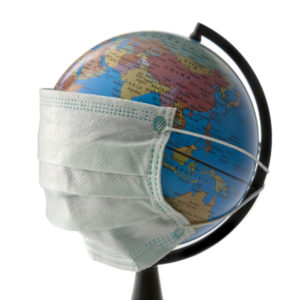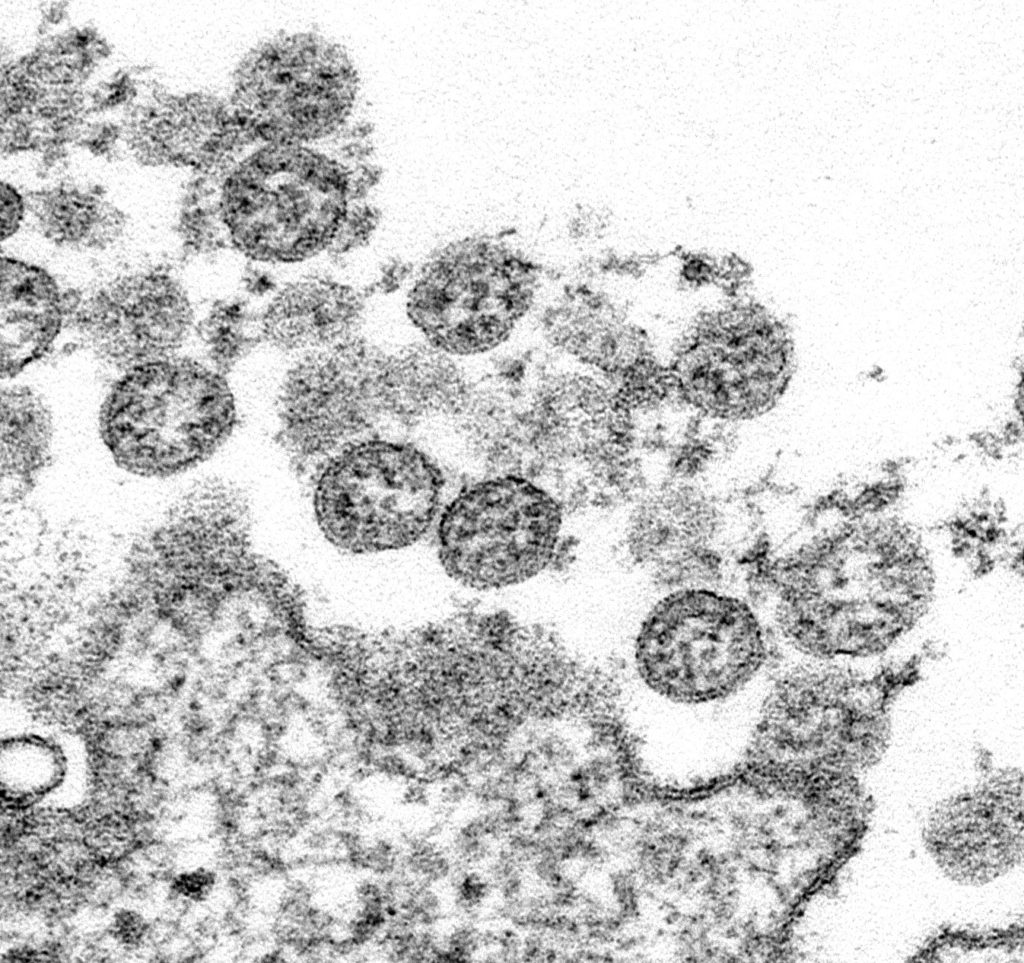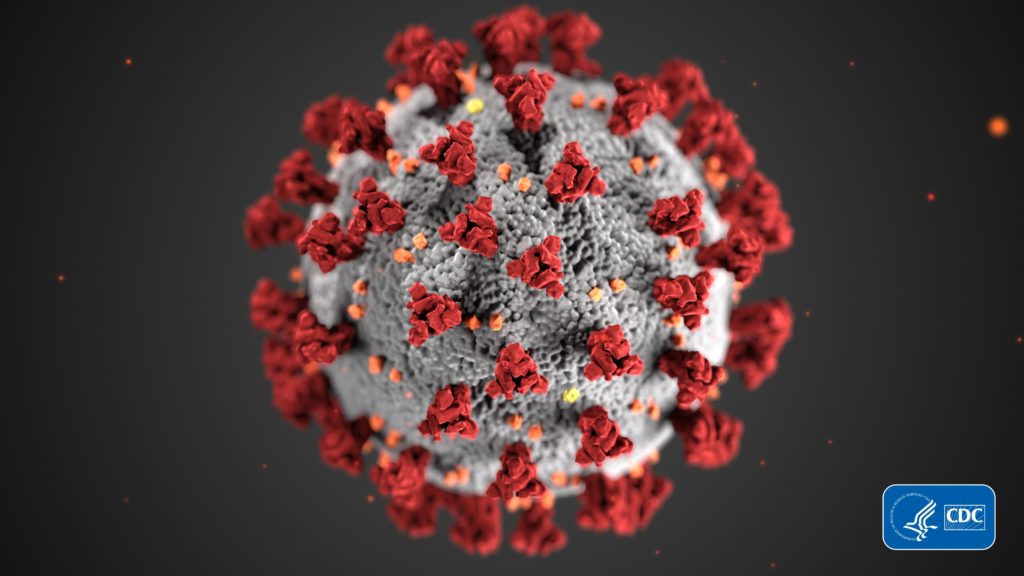
CCC, Assured Performance analyze COVID-19 collision industry impact; more events affected
By onAssociations | Business Practices | International | Market Trends | Repair Operations
Assured Performance and CCC on Monday both shared ideas into what the COVID-19 coronavirus could mean for collision repair businesses, with Assured Performance noting that existing work backlogs could alleviate the financial blow and CCC suggesting the possibility of parts shortages.
“(O)n a more global basis and related to the anticipated impact on shop sales and available volume of work, it is safe to predict there will be significant drop in miles driven by the general public and therefore far fewer accidents,” Assured Performance CEO Scott Biggs wrote in an email Monday. “This will result in fewer repairs and therefore significant decrease in repair volume at the shop level. This is likely to result in a significant slow down for repair shops and therefore may cause some layoffs, but not immediately. This should be anticipated. However, there’s a silver lining.
“Many shops have had too few employees to keep up with the workload. Therefore, for a few months of time we may see a leveling off instead of a major drop as shops absorb some of their backlog. If this crisis lasts only 4 to eight weeks, we’ll see a dip, but not a major crash. It’s very likely that it may just be a month-long corrective action with a slowdown in hiring or shift in employment, but without significant layoffs. Considering the massive shortage of employees, this is the most likely outcome.
“Frankly, an over reaction is the most dangerous potential impact to the industry. Our recommendation would be to use this time and potential slow down to fine-tune the shop’s HR, training, and production efficiency.”
No. 2 collision repairer Gerber has repeatedly described to analysts a backlog it would love to attack — if only it could hire more technicians.
CCC lead analyst and director Susanna Gotsch also raised the prospect of lower miles driven meaning less work for shops. But she also noted that parts shortages could leave auto body shops hanging on the work they do receive.
“Trying to assess what the long-term impact of COVID-19 to the automotive, insurance and collision repair industries is difficult,” Gotsch wrote in a Monday CCC post. “However, analysis of claims data can potentially provide some basic framework for understanding the extent to which the automotive claims and collision repair industries might be impacted.
“Among the potential outcomes of the coronavirus to the automotive insurance and collision repair industries are:
“• Fewer potential accidents as miles driven fall;
“• Larger decline in new auto sales in the U.S. than originally projected for the year;
“• Larger decline in new auto insurance premium related to new auto sales;
“• Inability to get certain replacement parts;
“• Longer fulfillment time of certain replacement parts driving up claim and repair cycle times.
“Automakers are scrambling to identify at-risk components, and where necessary, looking for alternative suppliers or manufacturing locales for affected parts. All are watching inventory levels of these at-risk parts closely, and in some cases slowing new vehicle production to conserve these parts. Analysis of vehicle appraisal data from CY 2019 conducted to understand the potential impact of tariffs on auto parts coming from China revealed those parts accounted for reveals these parts accounted for roughly 5 to 10 percent of total dollars for replaced parts. However, as the virus spreads, impact could be much broader in scope.” (Minor formatting edits.)
Gotsch said that a loss of Chinese imports might have an indirect effect on parts.
“Ten percent of auto parts imports into the U.S. in CY 2019 came from China, but China also manufacturers many parts that ultimately as components used in production of larger components imported ultimately from other countries,” she wrote.
“Additionally, analysis conducted by CCC reveals more and more vehicle repairs include the replacement of an airbag, wire harness, camera or sensor, parts that are dependent on components from China.”
It’s interesting to note that should some manufacturers experience a shortage of Asian components, body shops might not feel it until weeks from now.
“The North American impact of the supply chain disruption may still be a few weeks out as it can take 30-60 days for parts sourced from Asian factories to reach the point of production here,” the Center for Automotive Research wrote Feb. 24 in a passage Gotsch quoted Monday. “Additionally, the disruption may impact parts and components sourced from other countries, and each level of the supply chain has an inventory that may serve to buffer and further delay production interruptions in North America.”
OEMs also announced or agreed to temporary production halts in the days after Biggs and Gotsch’s analyses, but the impact on replacement parts appears to be largely minimal.
Honda on Wednesday said it would stop manufacturing in North America March 23-30, affecting about 40,000 vehicles.
“At this time, Honda’s six-day North American new vehicle production suspension is not expected to affect availability of Acura or Honda Genuine Replacement Parts,” spokesman Chris Martin wrote in an email.
Toyota said Wednesday it would stop production in North American March 23-24 but “Our service parts depots and vehicle logistics centers will continue to operate.”
General Motors on Wednesday said it would launch a “systematic orderly suspension” of North America manufacturing “until at least March 30. Production status will be reevaluated week-to-week after that.” Ford said it would halt North America production after the Thursday evening shifts to March 30.
Both described plans to extensively clean facilities during that time.
However, “Our parts depots will remain open to provide critical parts for our customers,” Ford spokeswoman Kelli Felker wrote in an email Wednesday.
FCA will close facilities “starting progressively from today through the end of March,” it said Wednesday.
Automotive News reported Wednesday FCA and Ford both already idled plants after employees tested positive for COVID-19, as did Volkswagen with a Detroit office.
Mercedes parent company Daimler on Tuesday said it would “suspend the majority of its production in Europe, as well as work in selected administrative departments, for an initial period of two weeks.”
“This is a dynamic situation which continues to evolve, and we are closely monitoring developments together with our dealer partners to ensure we are supporting our customers in a safe and responsible manner,” Mercedes said in a statement. “In light of this, we will continue to make adjustments to our operations and communicate any relevant changes as needed.”
Nissan in a post Wednesday announced it would suspend U.S. production March 20-April 6. “Areas deemed business-essential will operate with enhanced safety measures,” it wrote.
Hyundai suspended production at its Alabama plant Wednesday following an employee testing positive for COVID-19. The OEM said it will reopen when it was deemed safe.
Gotsch had described the impact of another automotive shutdown — the UAW’s GM strike in 2019 — in her analyses.
“A survey conducted by CollisionWeek at the time reported four out of five shops surveyed indicated they had seen GM parts’ delays,” Gotsch wrote. “However, only less than two in five of the GM vehicles needing repair were impacted and use of alternative no-OE parts enabled the shops to reduce the overall impact to vehicle delivery times. However, while the GM strike had a more immediate impact on the collision industry given the delay in replacement parts delivery, the coronavirus seems to be impacting the auto industry further upstream where parts are being interrupted for new vehicle manufacture. Additionally, while there were some short–term delays, overall industry-wide data reveals there was limited impact, in part due to the strike duration.”
What’s going on in your shop? Drop us a line at info@repairerdrivennews.com or call us at 866-893-2544.
Latest closures/postponements
And in more immediate impacts on the collision industry ecosystem, the Alliance of Automotive Service Providers of Minnesota, Carolina’s Collision Association and Automotive Body Parts Association have this week announced events affected by the coronavirus.
AASP-MN said Tuesday it cancelled its Annual Meeting & Leadership Conference on April 23 and all other committee meetings and events until further notice.
“We cannot in good conscience proceed with a large gathering that could potentially put our members at risk of exposure,” AASP-MN Executive Director Judell Anderson said in a statement.
“Any registration fees that been received will be applied to the rescheduled event and hotel rooms can be canceled without penalty. Hopefully, this crisis will be behind us quickly and we can resume normal operations and reschedule all events.”
The organization also released advice for shops from Complete Health Environmental and Safety Services. The CHESS documents cover coronavirus planning and the risk from a customer’s vehicle.
Carolina’s Collision Association Executive Director Josh Kent (Elite Sales and Marketing) on Wednesday said his organization would move the May 1-2 Carolina’s Education Collision Conference until Feb. 19-20, 2021.
“We decided on these dates because when we are finally back to normal, other events will be taking new dates and life will still be chaotic for a lot of people as the rebuilding will need to take place,” he wrote in a mass email Wednesday. “We will be putting out a official press release hopefully by tomorrow.
“I have been in contact with other SE States to join us in planning for next year’s conference which will make it even better. We were wanting to change the dates of our conference so this will work out hopefully as we hope to not be interfering with other events in the Industry.
“I would like for you all to mark these dates in your calendars so we can continue where we are leaving off if possible. Please stay safe and we will talk to you all soon.”
The Automotive Body Parts Association reported it had pushed its April 28 annual meeting and convention in Newport Beach, Calif., back to Sept. 21. The venue (Hyatt Regency Newport Beach) won’t change, it said.
Registrations will carry over to the September event; if you registered but can’t make the new date, APBA would refund your fee. It encouraged participants to contact the Hyatt to cancel April reservations.
“Although this is an inconvenience for all, we do hope that you stay safe and healthy,” Executive Director Ed Salamy Jr. wrote. “Our hearts and thoughts certainly go out to all who have been affected by the COVID-19 outbreak.”
More information:
“COVID19 – What It Might Mean For Our Industry”
CCC, March 16, 2020
“All AASP-MN Meetings & Events Cancelled Until Further Notice”
Alliance of Automotive Service Providers of Minnesota, March 17, 2020
“ABPA Postpones Spring Convention Until September 2020”
Automotive Body Parts Association, March 17, 2020
“Planning for COVID-19: Should you worry?”
Complete Health Environmental and Safety Services, 2020
“Working on Vehicles – and COVID-19”
CHESS, 2020
Images:
The coronavirus could impact the supply of both Chinese auto parts and parts built elsewhere with Chinese components, according to CCC. (Floortje/iStock)
Virus particles from the first U.S. case of COVID-19 are seen in this transmission electron microscopic image. (C.S. Goldsmith and A. Tamin/Centers for Disease Control)
This Centers for Disease Control and Prevention image depicts a coronavirus. The novel coronavirus “Severe Acute Respiratory Syndrome coronavirus 2” (SARS-CoV-2) is linked to a respiratory illness first detected in Wuhan, China. The medical condition has been named “coronavirus disease 2019” (COVID-19). (Alissa Eckert and Dan Higgins/CDC)


